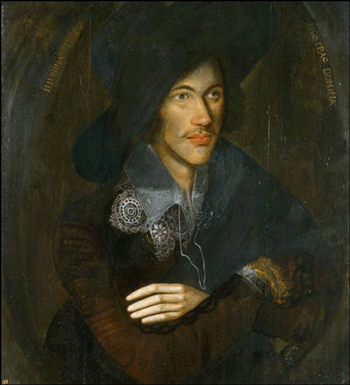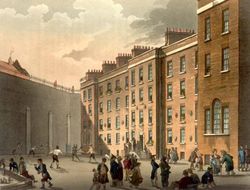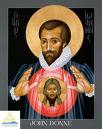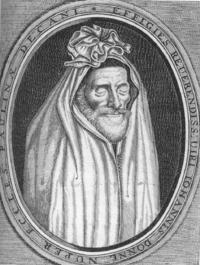|
|
 |
|
Biography of John Donne
1572 - 1631
|
 |
|

|
| Portrait of Donne As Young Man |
Earlier Life
John Donne was born in London, England in 1572
in his father's home. Donne was the third of six children born into a Roman Catholic family. His father, also named John Donne,
was a respected religious man, though kept away from attentions from the government to prevent prosecution for his religion.
His mother was also from a Catholic family. Many of Donne’s close and distant relatives were prosecuted for their beliefs.
However, despite the martyrdom that his family saw through Catholicism, Donne eventually diverted away from his roots and
converted to the Anglican Church. The childhood Donne had was fairly devastating, with four of his close family members dying
before he was ten years old, including his father, which has made an obvious impact on Donne and resulted in many of the subjects
of poems he has written. By the age of seventeen he had already attended the University of Oxford and the University of Cambridge,
but being the cool guy that he is, did not take any kind of degree at either school. After his father died, Donne received
an inheritance that he used to travel and enjoy other cultures and countries, as well as other pastimes, literature, and women.
He traveled to Italy and Spain, and picked up Italian and Spanish and began influent in both, as well as became very familiar
with each country’s laws.
|
 |
|

|
| The Raquet Ground of the Fleet Prison circa 1808 |
Donne's Marraige To Anne More
After spending some time
traveling abroad, Donne settled down and became part of England’s higher social class. He had become the Chief Secretary
to the Lord Keeper of the Great Seal where he worked for Sir Thomas Egerton, a man of high authority in legal matters for
the Crown of England. As Donne worked for Egerton, he fell in love with his bosse's sixteen year old niece, Anne More. Their
marriage was secretive, and there had been only a handful of persons prevent to witness the union. When word got out of this
marriage to Egerton, he sent for Donne’s arrest, and eventually had Donne placed in Fleet Prison along with the priest
and witness who were present at the marriage. Eventually, when the marriage was established legal, Donne was released, as
were the other two men.
After Donnes release from Fleet Prison, he retired from his job as Chief Secretary to
Pyrford, Surrey. Pyrford is a town located in the southern part of the United Kingdom. Anne, his wife, and their children,
lived in a home in company with Annes cousin, since having such an abundance of children and Donnes career taking a stumble,
they had some financial troubles. Donne lived a poor life for the next couple years as a lawyer, while finding time to have
an intimate relation with Anne who had a kid about one every year, with their first child, Constance, being born in 1603.
Donne published his first piece of work 1609 with the poem "The Expiration."
|
 |
|

|
| Religious Portrait |
Career as Priest
Even though it might have seemed that Donne
was doing well after his release from prison and with providing for his wife and children, he was having trouble from within
himself. The letters that were written by Donne during this time tell a story of depression and illness. It was during this
time period that Donne was offered a position in the Anglican Church. Soon after he became the King's chaplain, or priest.
In the years following Donne gave countless sermons and preached for the Church of England.
|
 |
|

|
| Donne as he imagined himself after death |
Final Years
A few years later in 1617 his wife of about seventeen
years died giving birth. With the death of his wife, Donne wrote the 17th Holy Sonnet with his wife’s death in mind.
In years after Anne’s passing, toward the end of Donne’s life, he moved higher up in the church and grew popular
with his sermons and became highly admired. Before his death in 1631, Donne made clear of his approval for suicide, because
he claimed that in a time of despair and money issues it would be alright if a child would die, thus having one less mouth
to feed and saving money. Even though Donne had great work as a poet and had some of it published, his greatest work would
not be published until after his death. Donne’s death in March of 1631 came only two months after his mothers death
in January, which could be thought of as though Donne died of a broken heart.
|
|
|
|
|
 |

